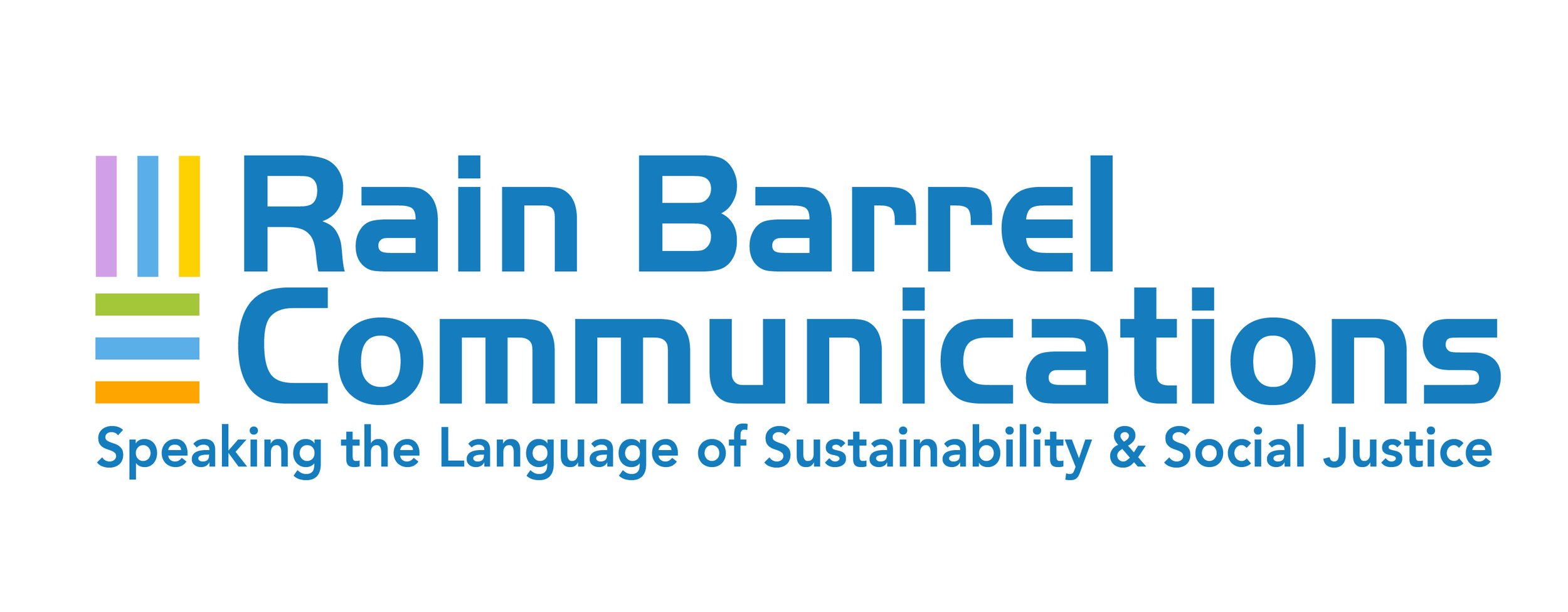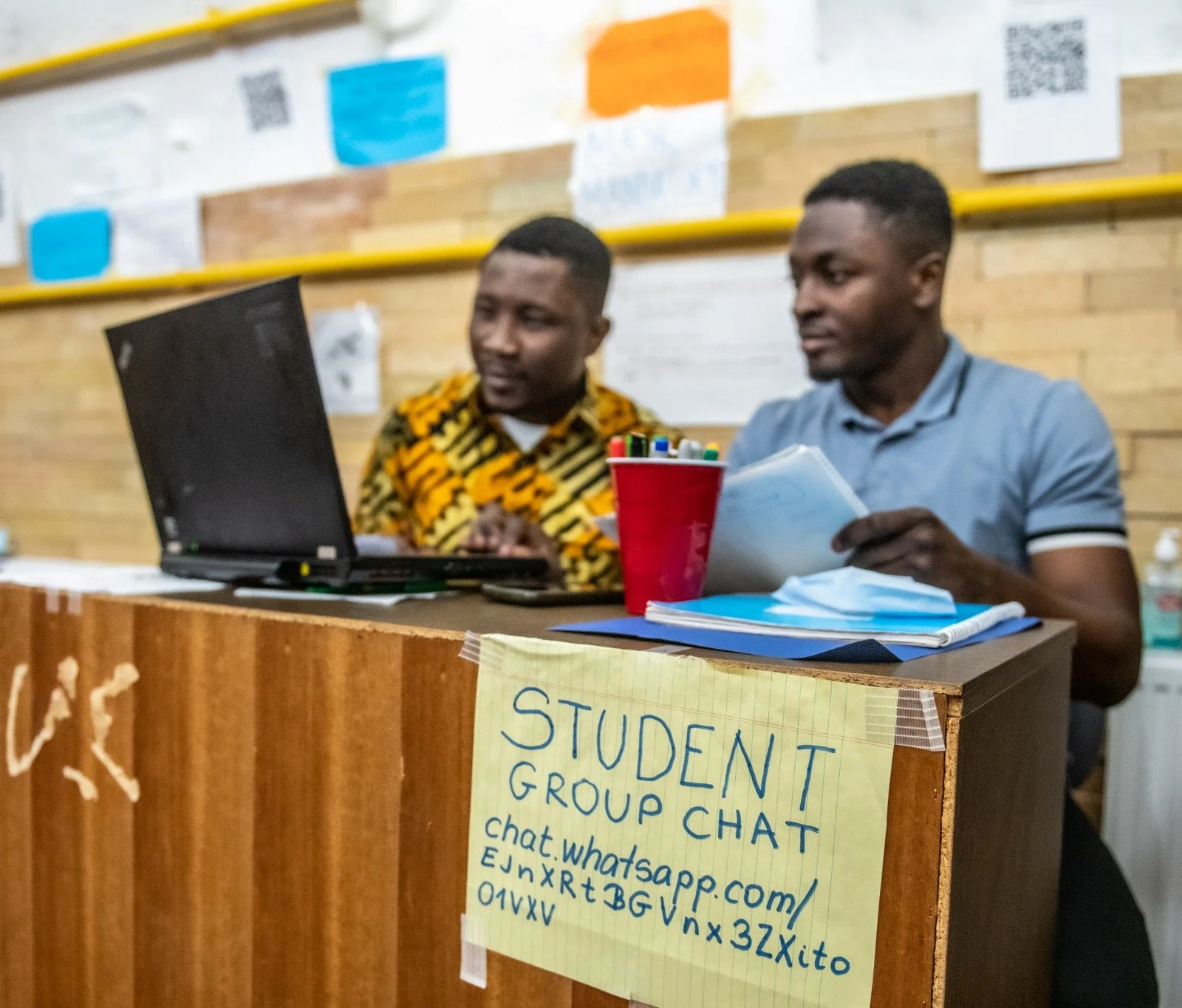From Ghana with love: A crash course in solidarity
Patterson on the left, Gabriel in the middle and Nathaniel on the right
By Lauren Jacobs (Story) and Ryan Carter (Photos)
When war broke out in Ukraine on 24 February, life changed for everyone. The darkness of war gripped all Ukrainians, and among those fleeing the invading Russian army were over 76,000 international students, many from Africa, studying at Ukrainian universities.
Daily life had looked like sitting behind a book, in a lecture, behind a computer screen writing essays and dreaming about life after university. Now with the Russian invasion, international students found themselves overwhelmed, isolated and on the run to cross borders into neighbouring countries still more foreign to them.
Arriving in Hungary, Poland and other countries and without embassy or university support, most African students had no accommodations or knowledge of the local languages and social networks. Some had fled from war back home in Africa, finding solace and new hope while studying in Ukraine. Suddenly they were fleeing war for the second time.
In Hungary, just 48 hours after the invasion, Gabriel Asante, president of Ghana Students Association in Budapest, received a desperate call for help. The message was simple. Nineteen Ghanaian students and two Nigerian students had managed to board a train from Ukraine and are heading to Hungary. Can you help them?
“When I got the call, I knew I needed to help these students, so I called my guys and told them we need to find accommodation for these students,” recalls Gabriel. “But finding accommodation was difficult. We didn’t have resources or money, and accommodations were already booked up. The pastor of the Pentecost International Worship Centre in Budapest allowed us to bring the students to the church on the morning of their arrival, until we could finds places for them to stay. While we searched, we brought them to the church and gave them food, made them feel safe and just talked with them before taking them to their accommodations in the evening.”
That was Saturday night.
The Ghanaian student team cooking and serving food in the Church basement
Gabriel, and the financial secretary of the Ghana Students Association, Patterson, as well as the PR officer, Nathaniel, made sure these students were safe and fed. But it was more than just feeding hungry, exhausted people; they wanted to give them a sense of home, a sense of hope, and a renewal of that feeling of safety. “We made only Ghanaian food for them and played Ghanaian music. This is not just about helping people; this is about feeding their soul. Telling them they are safe, giving them a sense of home, that safety of home.”
This is not just about helping people; this is about feeding their soul.
A few hours later, after a full day of unexpectedly finding themselves working with the refugees, Gabriel received another call. This time 130 students had arrived on the border Ukraine/Hungary border, with nowhere to go.
Nathaniel decided it was time to post on social media asking for help for the cause. They needed accommodation, food, clothing, anything. The response was magical. People from across Hungary started arriving and volunteering; donations of food, clothing and offers for accommodation poured in. Psychologists volunteered their services to any traumatized students, even posting their contact numbers for later use.
Meeting international students at the Budapest Train Station
“The local Hungarian people helped so much and we are so grateful to them,” Gabriel shared. “People arrived offering accommodation in their homes, some people came over just to clean up and then left again. We then realized we could help other students as well because we had everything we needed.”
Gabriel, Patterson and Nathaniel joined hands with “workshop,” a local café that began operating as a safe haven for refugees. From there, they made sure students eat warm, homemade meals and find fellowship with other students. They even created a special team to check if accommodation offered by locals is suitable for the students who reach them. As students arrived, they assisted some in finding other schools to study at. They have helped settle others into accommodation for a longer period of time, until they can decide on their future and the steps forward.
More than 30 volunteers joined Gabriel, Patterson and Nathaniel, and female students from local universities were cooking non-stop. But after serving close to 200 students, another 800 international students from Kenya, Congo, South Africa, Cameroon and Nigeria arrived seeking help from Gabriel and his team.
Over 325 Ghanaian students came to them as well. “We didn’t have any support -- we are not an NGO -- but we could help over 1100 people because whatever you need to do, you must do it. If you want to help people, do it! All of this was done out of goodwill.” Gabriel, Patterson and Nathaniel have now booked long-term accommodation for many of the students, and are continuing to support them daily. Providing food packages they can cook for themselves, and continuing to check up on them.
Patterson & Nathaniel registering refugee arrivals, tracking accommodation locations around the city, and listing donations and needs
After witnessing the power of creating community and support for those affected by war, they have now started an NGO to continue the work. Patterson, who is a key member of the team, said “When I was a child my father had a room in our house in Ghana where people could come stay and be safe. He helped so many people. They even named their children after my father! It is part of our culture as Africans, especially in Ghana, whether you know the person or not, you still help them.”
Gabriel, Patterson and Nathaniel are continuing the work they began, and anyone who reaches them in Budapest will be helped to get clothing, food and accommodation. It’s a model they want to replicate across other countries and communities. “The least we can do is help people get their life back on track again. We did it without any resources, just as students who wanted to help, and this is the best way we can do that. Anyone who reaches us will be helped, we support anyone who is displaced by war.”
While the work has slowed, the passion has not, and with an estimated four million people expected to flee Ukraine as refugees, the work of support for those affected by the war, is just beginning.
Volunteers serving tea and coffee to refugees arriving from Ukraine
For more information:
IG account: https://www.instagram.com/gash_hungary/
GASH Email contact: ghstudentshu@gmail.com
Gash Facebook: https://www.facebook.com/gashmedia.4u
About this story: Ryan Carter is a friend of the Rain Barrel network. He produced and shared this visual piece of storytelling for The Flow, when travelling to Europe in March 2022, to help document humanitarian support to the victims of the war in Ukraine. “Lauren and I think this story embodies the principles and values that Rain Barrel are all about. Coming together to help and support each other in a time of need. So this story is for The Flow”. Thank you Ryan and Lauren. We are delighted to be able to share this with our readers.






